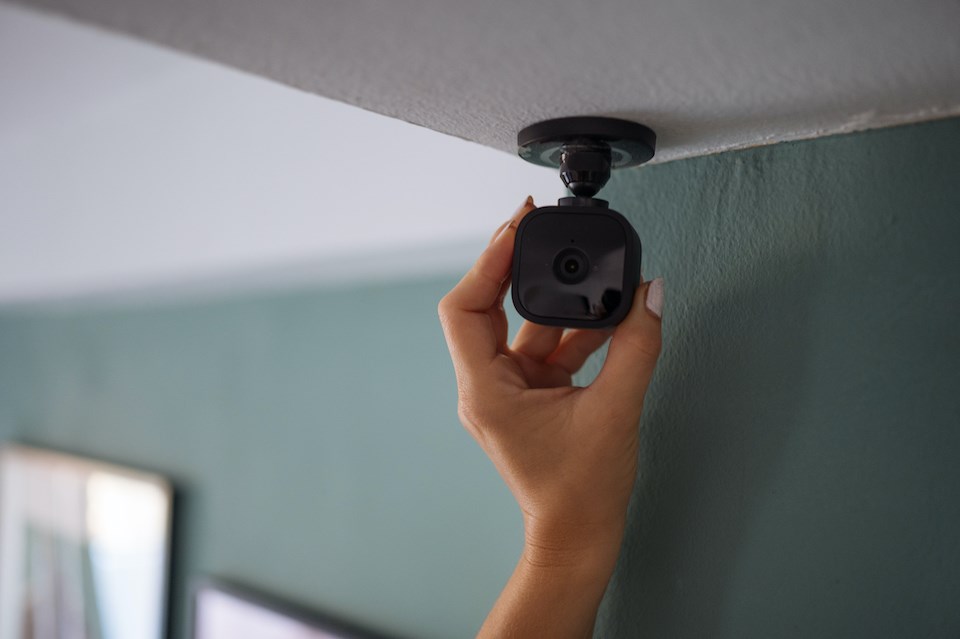Tenants concerned about safety in their apartment buildings can install security cameras anywhere inside their units...provided they don't infringe on the privacy of other residents.
Metro Vancouver renters concerned about break-ins or their landlord illegally entering their units can use security cameras to record these incidents. They may have to check with their landlord before drilling holes or doing anything that involves damage to the unit. However, numerous security tools don't require installation and run on batteries.
But tenants looking to install doorbell cameras or cameras outside their rental units may face issues, particularly if these cameras face directly into their neighbour's rental unit.
Lasse Hvitved is a designated paralegal and legal advocate with the Tenancy Resource and Advisory Centre who works with renters facing issues with their landlords across B.C.
He tells V.I.A. tenants have a right to feel safe in their homes. However, they must not infringe on the privacy rights of other people. In other words, one tenant's rights cannot override the rights of another.
According to section 32(1) of the Residential Tenancy Act (RTA), landlords must ensure that "their rental properties comply with health, housing, and safety standards required by law." This may mean that they provide additional security measures after multiple break-ins or other issues with their properties.
Hvitved tells V.I.A. that landlords may install security cameras in halls of apartment buildings or outside of a rental property for safety. But they cannot monitor one person directly.
"For building managers, in many cases, it has been deemed illegal if cameras are watching one tenant's door. That has been found to be a violation of the reasonable right to privacy," he clarifies.
Metro Vancouver tenants must consider privacy rights when installing security devices
Tenants must also consider the privacy rights of other people when installing security devices such as doorbell cameras or other recording devices. They must even consider who they are recording when they place cameras facing outside.
"It depends on what it is watching. If you are catching other tenants on the camera, arbitrators have found that that is not allowed," he notes.
Hvitved says the RTA doesn't articulate nuances concerning privacy issues between landlords and tenants.
"Generally, the RTA is pretty silent on these privacy issues," he notes.
Nevertheless, several decisions published by the RTB show how arbitrators approach residential tenancy disputes concerning privacy and security.
In an RTB hearing on Feb. 29, 2024, a tenant said their agreement permitted them the use of their front yard and side yard. They assumed this meant "exclusive use." They complained to the landlord about loss of privacy because the upstairs tenants placed a security camera at the front of the house, noting they couldn't come and go "without getting spied on by the upstairs tenants."
In this case, the tenant felt another renter was infringing on their right to the quiet enjoyment of their rental unit. However, the landlord noted the other tenant's security camera was aimed solely at their work vehicle in the driveway.
The arbitrator sided with the landlord, saying the tenant did not have exclusive use of the area the camera pointed at.
In a Feb. 5, 2025, decision, an arbitrator referenced a past decision where a tenant was ordered to move her security camera so that the "neighbour’s front
door is not recorded." Following the order, the tenants removed the security camera.
In a hearing on Oct. 8, 2024, an arbitrator ruled that a landlord violated her tenant's privacy by remotely viewing a security camera that pointed toward the tenant's door and could see inside when she opened her door.
Security cameras are a "grey area" with the RTB; many factors are considered
CCTV cameras surveying hallways that don't point into specific rental units are generally permitted, Hvitved noted, but it is "still a grey area." Issues with building security generally mean the landlord can argue these items increase the safety and security of the property.
On the other hand, tenants can't require their landlords to do much outside their units, particularly if it impedes another tenant's quiet enjoyment and privacy.
"It is always some of the toughest calls that [our lawyers] get here," he notes. "The question, 'what does reasonable privacy mean?' is not clearly detailed [in the RTA]."
Hvitved says tenants may not have access to changes until something happens, such as break-and-enters. This rule also applies to other incidents, such as landlords illegally entering their units.
"As soon as some abuse happens, then you have a trigger where you can apply to get permission to change. A tenant can file for that. It typically requires that there has been some illegal entry," he explained.
Can I have a peephole inside my rental unit?
Hvitved says it would be difficult for a landlord to argue against allowing tenants to have a peephole installed in their apartment, particularly if they offer to restore any damage to the door after they leave.
"If you are offering to pay for a peephole and restore the door after, it would be difficult for a landlord to oppose that, particularly if there is a good reason," he explains.
However, tenants must take these matters to the RTB to receive permission from an arbitrator if the landlord denies their request.
"Generally, tenants are too limited with what they can do to change the property. Even if you paint the unit, you have to paint it back to the original colour before you leave," he notes.
"You would need to alter the door to install the peephole."



